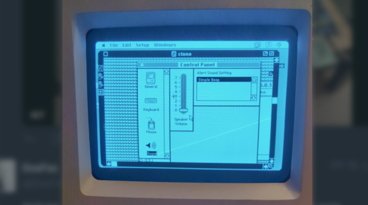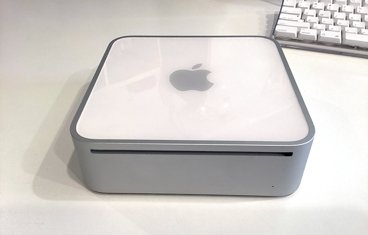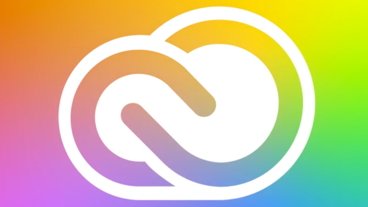Ballmer sees Mac as a main competitor, iPhone as just buzz
As software giant Microsoft is warning of continued economic hardship after its first round of layoffs ever, the company's chief executive is eyeing competition from Apple, Linux, and Google on the desktop while downplaying the market strength of the iPhone and other opponents of its Windows Mobile operating system.
Following the RCA Model?
Ballmer told participants that Microsoft, like RCA during the Great Depression, will look to spend money on research and development so it can dominate the market once the economy rebounds.
The software giant's co-founder didn't make any mention of RCA's eventual buyout at the hands of General Electric and subsequent sale of the electronics brand to the French, becoming part of the then state-run Thomson SA.
Windows 7, Office 14, Advertising, Windows Mobile
The Redmond, Wash.-based company is targeting a January 2010 release for Windows 7, which will arrive with a heavy blitz of advertising spending to promote both the new operating system and Office 14. Microsoft announced a public beta of Windows 7 last month. It also intends to open its own retail stores in an attempt to better control its public image.
Meanwhile, Ballmer addressed its competitors on the OS scene, both acknowledging Apple's one percent gain in market share over the last year and the rising open-source alternatives.
"We're very focused on both Apple as a competitor and Linux as a competitor," Ballmer said, according to CNET. "I think the dynamics with Linux is changing somewhat. I assume we'll see Android-based, Linux-based laptops, in addition to phones, and we'll see Google more and more as a competitor in the desktop operating system business than we ever have before... the seams between what is a phone operating system and a PC operating system will change, so we have ramped our investment in the client operating system."
Ballmer down on integrated smartphones
Ballmer also said he was not impressed with the integrated model of Apple's iPhone, which has captured 51% of mobile web traffic, or Research In Motion's BlackBerry platform, which dominates the corporate messaging market in the US.
"The truth of the matter is all the consumer market mojo is with Apple and to a lesser extent BlackBerry," he said. "And yet, the real market momentum with operators and the real market momentum with device manufacturers seems to primarily be with Windows Mobile and Android." Ballmer's company made similar comments as it worked to promote PlaysForSure as an industry coalition in competition with Apple's iPod.
Last week Microsoft previewed Windows Mobile 6.5, which won't ship until the end of the year. The company plans to launch Windows Mobile 7, which was originally intended to have already shipped by now, sometime next year.
Despite dismissing the iPhone as hype, Ballmer said he sees growing competition in mobile software sales, such as Apple's iPhone App Store. He also has noticed the growth of ecosystems with software, hardware, and services bundled together. Both the Cupertino-based company's iPhone and RIM's BlackBerry fit that description, while Microsoft itself does not manufacture handsets. To date, it has favored partnerships with existing device makers instead.
Windows 7 on Netbooks
Ballmer indicated plans are underway to make Windows 7 work well on the small laptops known as netbooks, which would correct Vista's requirement for more robust system resources than the more modestly-powered netbooks can provide. Microsoft doesn't make as much money from sales of Windows XP as it could charge for Vista, were Vista capable of running on the low cost, simpler devices.
Microsoft will offer a Windows 7 Starter Edition optimized for netbooks while at the same time making efforts to convince netbook customers to pay more for full-featured versions of Windows 7. How the company intends to go about that goal was not elaborated on. The Starter Edition is defined by Microsoft as running just three apps at a time and lacking the Aero Glass user interface that defines both Vista and Windows 7.
Grappling with Google
Finally, Microsoft plans to keep on in its fight against Google for web search and advertising market revenues, even though efforts to bolster Windows Live Search and a Yahoo takeover bid both failed.
"You give up, you can't get back in the game," Ballmer explained. "I don't want to wind up being known as the Jerry Yang of this market," referring to the Yahoo co-founder who was ousted from his CEO position just months after rejecting Microsoft's $47.5 billion takeover offer.
The meeting comes after Microsoft announced five thousand job cuts late last month and was embarrassed in recent days by an accounting glitch that short-changed some fired employees of their full severance pay and inadvertently overpaid others.
The Redmond-based software maker then suffered a PR nightmare when letters asking that the extra funds be returned were publicized, pressing the company to reverse its stance and issue an apology that let laid-off workers keep the extra pay.
 Zach Spear
Zach Spear













 Amber Neely
Amber Neely
 Thomas Sibilly
Thomas Sibilly
 AppleInsider Staff
AppleInsider Staff
 William Gallagher
William Gallagher
 Malcolm Owen
Malcolm Owen
 Christine McKee
Christine McKee










71 Comments
Crazy Ballmer talks crazy. Time to sell your MSFT stock.
Is Steve Ballmer a good manager or something and we just don't see it? I really question how this guy got to sit in the seat to drive MS.
What are his qualifications and does the MS team on board with this guy?
All I hear is hot air. Someone throw an egg at him.
And where is RCA now?
DEAD!
Crazy Ballmer talks crazy. Time to sell your MSFT stock.
If Ballmer isn't careful he'll be replaced. The Microsoft board of directors and stock holders won't stand a few more quarters of losses.
Interesting how he doesn't see the iPhone as a competitor and does with Android. Android isn't in as many countries as the iPhone. Apple has just begun in the phone market and really hasn't shown the world it's next update which will be major.